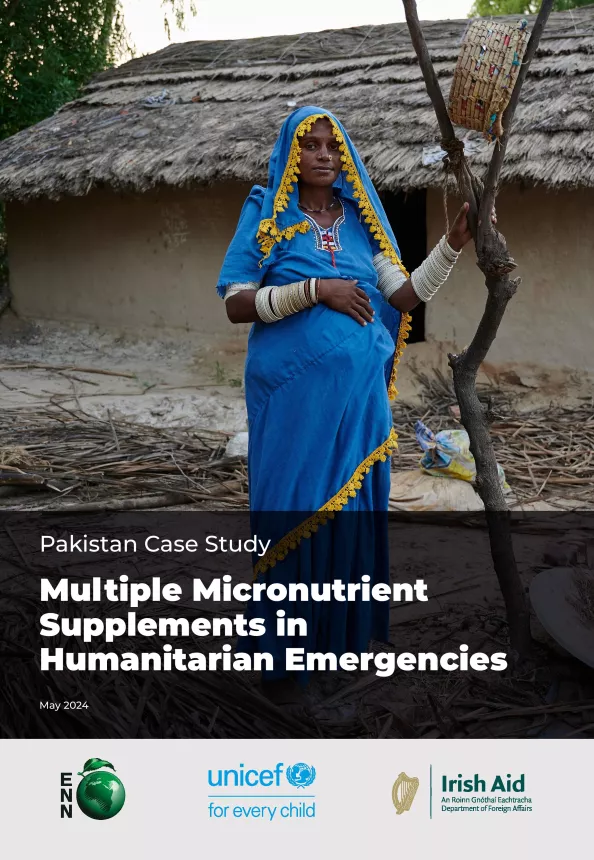Multiple Micronutrient Supplements in Humanitarian Emergencies: Pakistan Case Study
Publication details
In 2022, severe monsoons affected over 33 million people in Pakistan, leaving 20.6 million (including 9.6 million children) in need of humanitarian assistance. Also in 2022, heavy rainfall in the southwest of the country led to flash floods, fatalities, and infrastructure damage, compounding vulnerabilities. In this case study we explore how multiple micronutrient supplements (MMS) programming has been included as part of antenatal care services in the country. We summarise the existing policies and programmes related to MMS; describe the main organisations involved in MMS programming; and highlight the main points regarding how MMS programming is planned for, delivered and monitored. We then summarise the key opportunities and challenges for MMS programming at scale in Pakistan, organised by WHO health system building block.
This is part of a collection of three related resources on the topic of MMS in humanitarian emergencies. The related resources include an accompanying case study from Somalia and our overall State of Play report on MMS programming in humanitarian emergencies.

Download
Cite this publication
Reference this page
Kate Sadler, Amir Samnani, Philip James and Emily Mates (2024). Multiple Micronutrient Supplements in Humanitarian Contexts: Pakistan Case Study. Emergency Nutrition Network (ENN): Kidlington, Oxford, UK. May 2024. https://doi.org/10.71744/89rp-ee16
